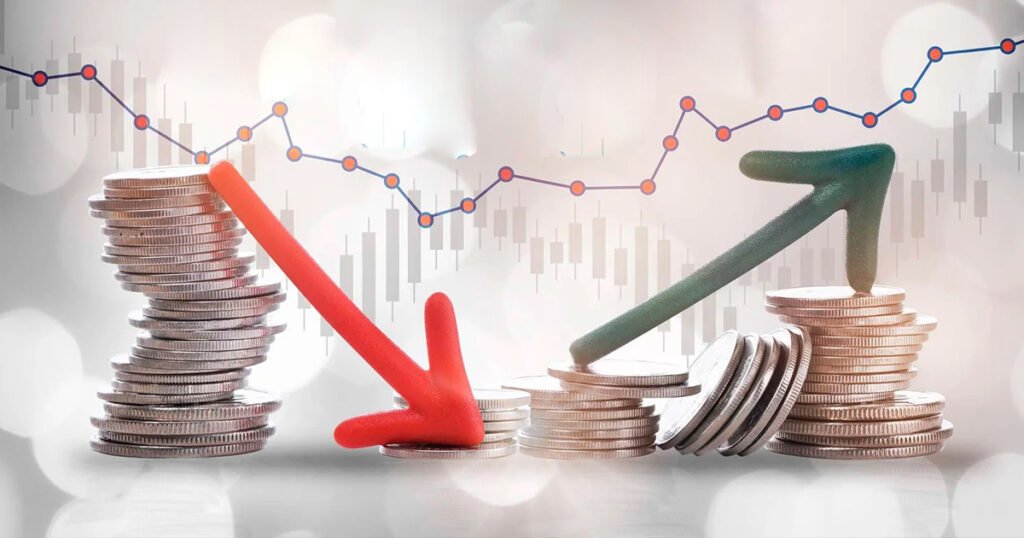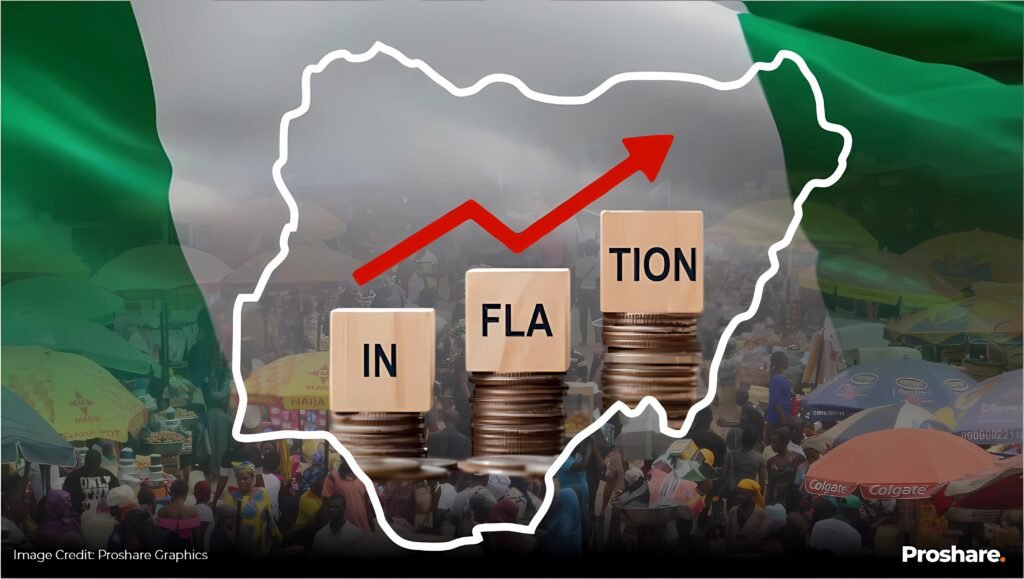In a bid to alleviate the economic strain gripping Nigeria, the government has announced its pursuit of up to US$2.25 billion in loans from the World Bank.
Nigeria, once a stalwart in Africa’s economic setting and the largest oil exporter in Africa, has found itself grappling with a myriad of challenges in recent years. Chief among these challenges is a crippling shortage of foreign exchange, which has led to the devaluation of the naira against the U.S. dollar. This currency volatility has sent shockwaves throughout the Nigerian economy, exacerbating the hardships faced by its citizens.
The proposed loans from the World Bank encompass two main components: US$1.5 billion in development policy financing and US$750 million in programme-for-results financing. These funds are intended to provide much-needed support to Nigeria’s struggling economy, which has been grappling with a shortage of foreign exchange. This shortage has contributed to the depreciation of the naira currency against the U.S. dollar, reaching record lows earlier this year. While the currency has since rebounded, the underlying challenges remain, necessitating proactive measures to bolster economic stability.
In addition to seeking loans from the World Bank, Nigeria is also exploring alternative avenues to attract foreign exchange into the country. One such initiative is the issuance of diaspora bonds later this year. By tapping into the resources of its diaspora community, Nigeria aims to bolster its foreign exchange reserves and mitigate the impact of currency volatility. This strategy underscores the government’s commitment to exploring innovative solutions to address economic challenges and promote sustainable development.
President Bola Tinubu’s administration inherited an economy burdened by record debt, high unemployment rates, and significant central bank financing. These formidable challenges underscore the urgency of implementing effective measures to stimulate economic growth and foster prosperity for all Nigerians. While the pursuit of World Bank loans and diaspora bonds represents important steps in this direction, they must be complemented by broader structural reforms to address the root causes of economic instability.
Nigeria’s Inflation to Ease In Q2
On the inflation front, the much needed respite for Nigerians is about to get merrier as analyst forecast inflation to ease in the second quarter. The first quarter of 2024 will be remembered as a turbulent period in Nigeria’s economic history, as the nation endured the wrath of inflationary turmoil. The headline inflation rate soared to 33.20 percent in March 2024, reaching its highest level since March 1996, a grim milestone that underscores the lingering impact of persistent challenges such as insecurity threatening food production, removal of fuel subsidies, and currency volatility.
Despite the looming shadow of inflationary pressures, a glimmer of hope appears to be shining through, as analysts predicted that the inflamed inflation rate is likely to begin a gradual descent in the second quarter of 2024. This moderating trend, is predicated upon the Naira’s recent appreciation and the eventual offsetting of the inflation base effect, a scenario which could herald the beginning of the end for the country’s inflation crisis.
However, some analysts warn against overly optimistic expectations for a rapid decline in inflation, anticipating a more measured easing of inflation, with food prices expected to moderate at a more sluggish pace, hindered by the enduring grip of insecurity upon the country’s food supply chain.
However, even with the anticipated downward trajectory of inflation, the relief felt by households could be muted at best, because the projected decline in inflation is not expected to have a substantial impact on the day-to-day lives of most households unless there is an increase in household income.
Nigeria is expected to grow by 3.3% in 2024, a slight improvement from 2023, supported by its oil sector.
As a result of Nigeria’s forex market witnessing considerable fluctuations and volatility in the local currency in the first quarter of 2024, this prompted the Central Bank of Nigeria to implement various policies to stabilise the Naira, bolster market confidence, and enhance transparency.
During the quarter, the Naira encountered significant depreciation across FX segments due to speculative activities, leading to historic lows of N1627.40/$1 in the official market and N1900/$1 in the parallel market, despite efforts by the central bank to support the currency.
The fruits of the policy reforms began to emerge in 2024, particularly in February with an encouraging influx of foreign exchange inflows, a surge in remittance and increased foreign investment in Nigerian assets. Dollar reserves increased by 2.80% to $33.83 billion by the end of first quarter of 2024 from $32.91 billion in December 2023, signalling enhanced foreign exchange inflow into Nigeria’s economy.
Interest Rates Expected to Remain Elevated in Q2 2024
Despite a semblance of relief in inflation forecasts, businesses are bracing for the continuation of elevated interest rates in the second quarter of 2024. The Nigerian financial landscape recently weathered a joint liquidity purge orchestrated by the Central Bank of Nigeria (CBN) and the Debt Management Office (DMO), resulting in approximately N12.7 trillion being wiped from the system within a mere four months, spanning from January 2 to April 15, 2024. These draconian measures have been identified as the primary catalyst behind a sharp escalation in interest rates.
Analysts foresee interest rates maintaining their heightened status in Q2 2024, with some moderation anticipated by July. This projection is reinforced by the imperative to uphold the gains achieved in foreign exchange rates. Simultaneously, the substantial borrowing undertaken by both the CBN and the federal government is poised to precipitate a notable increase in banks’ deposit rates. This phenomenon is attributed to corporate organizations offering heightened volumes of commercial papers, thereby furnishing depositors with alternative short-term investment avenues.
![]()
In terms of exchange rate dynamics, the Naira has undergone a noteworthy appreciation against the US dollar, a trend that commenced in March and persisted through the closing days of April, 2024. By the conclusion of business on the month of April, the Naira was valued at an average of well over N1,000/$ and N1,400.00/$ at the Parallel and NAFEM markets, respectively.
The sustained elevation of interest rates is poised to engender significant ramifications across various sectors of the Nigerian economy. For businesses reliant on borrowing for expansion or operational purposes, the higher borrowing costs could potentially impede growth and investment initiatives. Similarly, consumers may find themselves burdened by increased borrowing costs, potentially curtailing discretionary spending and overall economic activity.
Moreover, the appreciation of the Naira against the US dollar presents a double-edged sword. While it may initially confer benefits such as lower import costs and enhanced purchasing power for imported goods, it could also render Nigerian exports less competitive on the global stage, potentially hampering export-oriented industries.
Ultimately, while the prospect of elevated interest rates may pose near-term challenges for businesses and consumers alike, proactive adaptation and strategic planning can help navigate the evolving economic landscape and position stakeholders for long-term resilience and success.
Resilient Performance of Nigeria’s Domestic Equities Market
Amidst the backdrop of economic turbulence marked by double-digit inflation and consecutive Monetary Policy Rate (MPR) hikes by the Central Bank of Nigeria (CBN), the domestic equities market has emerged as a pillar of resilience, showcasing a flourishing stock market in the first quarter of 2024.
The All-Share Index (ASI), serving as a steadfast gauge of market vitality, surged by an impressive 39.84 percent Year-to-Date (YTD), culminating in a robust 104,562.06 points by the end of the first quarter. This remarkable growth propelled the market to amass gains totalling N18.2 trillion, with the industrial sector leading the charge, boasting a remarkable 78.49 percent YTD growth. The market cap of listed equities witnessed a substantial uptick of 44.50 percent, concluding the first quarter at N59.12 trillion after breaching the coveted N60 trillion mark.
The Nigerian Exchange Limited (NGX) demonstrated remarkable resilience, surpassing international benchmarks and defying macroeconomic challenges and successive MPR hikes by the CBN. Sector-wise, the NGX Industrial Index took the lead with a staggering 78.49 percent increase YTD, closely followed by Consumer Goods (+43.66%), Banking (+14.76%), Oil & Gas (+24.09%), and Insurance (+26.20%).
In contrast, a decidedly bearish trend unfolded in the secondary bonds market during the first quarter of 2024, with long-term bonds bearing the brunt of the impact. Average yields experienced a notable surge, escalating from a relatively subdued 12.03 percent in December 2023 to 19.41 percent by the first quarter of 2024. This dramatic upsurge was largely fuelled by a wave of sell-offs, primarily triggered by the CBN’s interest rate hikes.
Investor sentiment in the Nigerian fixed income and money market shifted significantly during this period, with a marked preference for shorter-dated instruments emerging. Heightened apprehensions surrounding mounting interest rates and inflationary pressures prompted investors to seek refuge in these instruments, perceiving them as a more stable hedge against volatility.
Despite the prevailing challenges, the spirit exhibited by Nigeria’s domestic equities market underscores its ability to weather economic headwinds and navigate uncertainties. The market’s robust performance not only reflects investor confidence but also serves as an evidence to the underlying strength and potential of the Nigerian economy.
All in all, while challenges persist, the domestic equities market’s resilience and buoyancy offer a glimmer of hope amidst economic uncertainties, underscoring its pivotal role in driving Nigeria’s growth trajectory.









